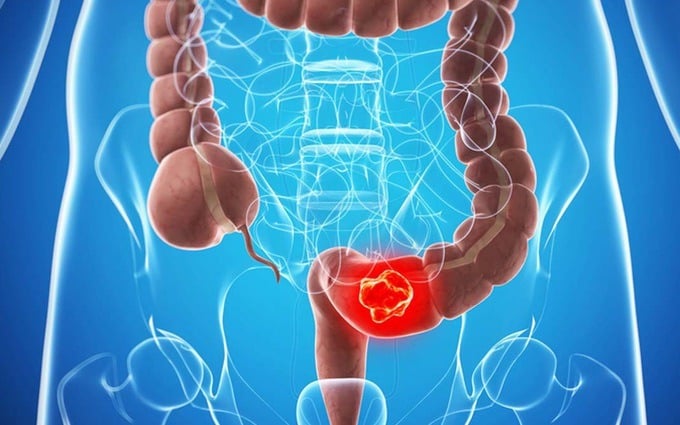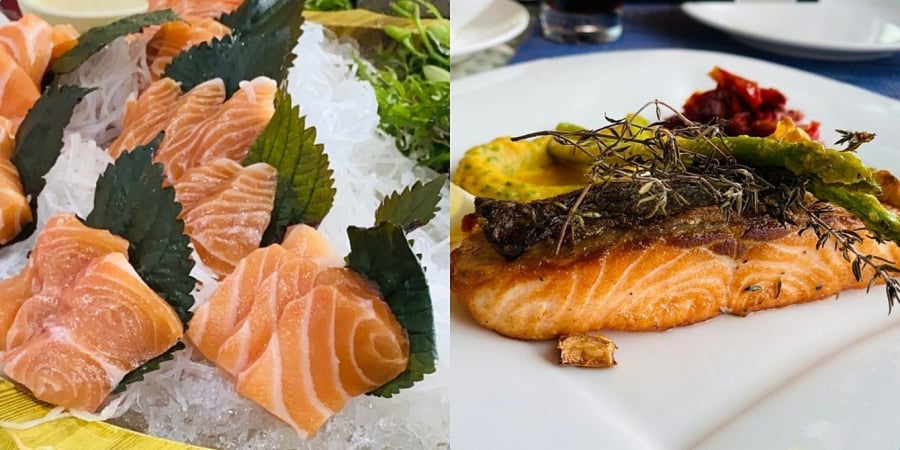In 2024, approximately 150,000 Americans were diagnosed with colorectal cancer. According to the Centers for Disease Control and Prevention (CDC), colorectal cancer is the fourth most commonly diagnosed cancer in the nation and a leading cause of cancer-related deaths.
Recent studies indicate a concerning rise in colorectal cancer cases among younger individuals.
Specifically, colorectal cancer is now the leading cause of cancer-related deaths in men under 50 and the second leading cause, after breast cancer, in women of the same age group. In contrast, the rate of colorectal cancer diagnoses in those over 60 has been declining in recent years.
According to Today, studies also suggest that diet can play a significant role in promoting the early development of colorectal cancer.
Here is a list of foods to avoid, along with alternative options and methods to maintain long-term gut health, to reduce your risk of developing colorectal cancer.
What foods may increase the risk of colorectal cancer?
Limiting the consumption of certain foods can be an important first step in reducing the risk of colorectal cancer.
Red meat, especially processed meat
Numerous studies have shown a direct link between the consumption of red and processed meat and colorectal cancer, and a recent study from Cleveland Clinic provides further evidence to support this.
This study suggests that metabolites (products formed when the body breaks down food) from red meat, along with changes in the microbiome after consumption, may increase the risk of colorectal cancer, especially in individuals under 60.
Younger patients who consume more red and processed meat tend to have higher levels of harmful metabolites in their intestines, a risk factor commonly seen in older patients.
Previous research also indicates that a Western diet, high in red and processed meat, can alter the microbiome, leading to an increased risk of colorectal cancer. This may be due to damage to the intestinal barrier and abnormal growth in the intestinal mucosa.

Sugary drinks and beverages
Cleveland Clinic also identifies the consumption of sugary drinks as a risk factor for early-onset colorectal cancer, which is corroborated by other studies.
A 2020 study published in the journal Gut analyzed data from 96,000 women and found that those who drank two or more sugary drinks per day had twice the risk of early-onset colorectal cancer compared to those who drank two or fewer per day.
Ultra-processed foods
A 2023 study suggests that consuming ultra-processed foods increases the risk of developing colorectal cancer precursors, such as polyps, tumors, and intestinal lesions. Ultra-processed foods include processed meat, sugary drinks, frozen dinners, candy, and alcohol.
A separate 2023 study also links heavy alcohol consumption to an increased risk of early-onset colorectal cancer. Specifically, drinking one to two, three to four, or more than five drinks per week increases the risk of colorectal cancer by 7%, 14%, and 27%, respectively, compared to non-drinkers.

Foods that may reduce the risk of colorectal cancer
A nutritious and minimally processed diet can help lower the risk of colorectal cancer. Several specific foods have been studied and shown to potentially reduce the risk of this cancer.
Whole grains
Fiber-rich foods like whole grains are essential for maintaining a healthy digestive system. Fiber not only supports the gut microbiome but also aids in quickly removing potentially carcinogenic substances from the body. Studies show that micronutrients in whole grains can help reduce inflammation and neutralize free radicals, unstable molecules that can damage cells and increase cancer risk.
Nuts and seeds
Nuts and seeds are rich in beneficial antioxidants and are associated with a reduced risk of various cancers, including colorectal cancer. Their consumption can improve the gut microbiome and support overall colon health.
Yogurt
Several studies have shown an inverse relationship between dairy consumption and the risk of colorectal cancer. The calcium in milk can bind to harmful bile acids, minimizing their damaging effects on the colon and thus reducing the risk of cancer.
Salmon
A 2021 Harvard study found that a higher intake of vitamin D from the diet was associated with a lower risk of colorectal cancer, especially in those under 50. Salmon, particularly wild-caught salmon, is an excellent source of vitamin D, along with other sources like milk, mushrooms, and eggs.
Extra virgin olive oil
Extra virgin olive oil contains polyphenols, antioxidants that reduce inflammation, improve the gut microbiome, and prevent various cancers, including colorectal cancer.
Other ways to reduce the risk of colorectal cancer
In addition to a healthy diet, studies show that several other methods can help lower the risk of early-onset colorectal cancer. These include not smoking, maintaining an active lifestyle with regular exercise, controlling blood sugar levels, and maintaining a healthy weight.
Does Eating Yogurt Every Day Make You Healthier Than Those Who Don’t?
Are you looking for a simple way to boost your health? Consider adding yogurt to your daily diet. Scientific research has unveiled a surprising array of health benefits associated with yogurt consumption. Five separate studies have revealed the positive impact of yogurt on our well-being, making it a delicious and nutritious addition to any meal plan.
The Dark Side of Ultra-Processed Food: Uncovering the Dangers of the Modern Diet’s Number One Enemy.
Are you a regular purchaser of these products at your local supermarket? You may be shocked to learn that these foods, beloved by adults and children alike, could be harboring a dark secret. A secret that links them to a staggering 32 different types of diseases, including cancer and cardiovascular ailments.





































